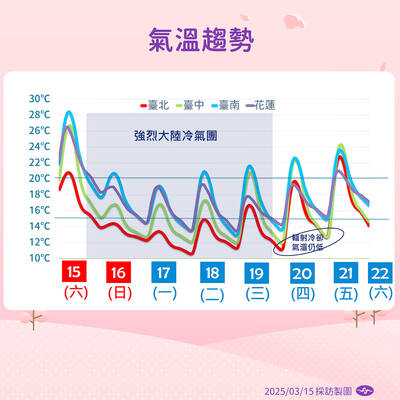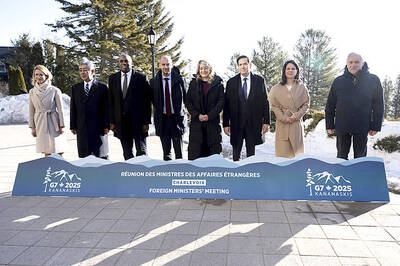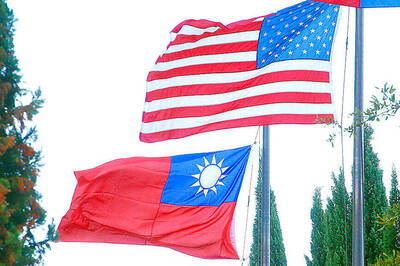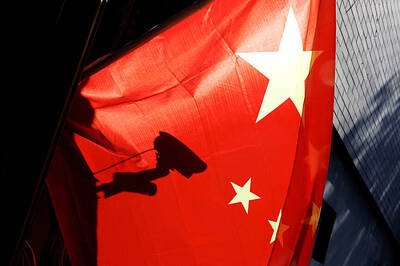《TAIPEI TIMES》 DPP lawmaker admits being a KMT informant
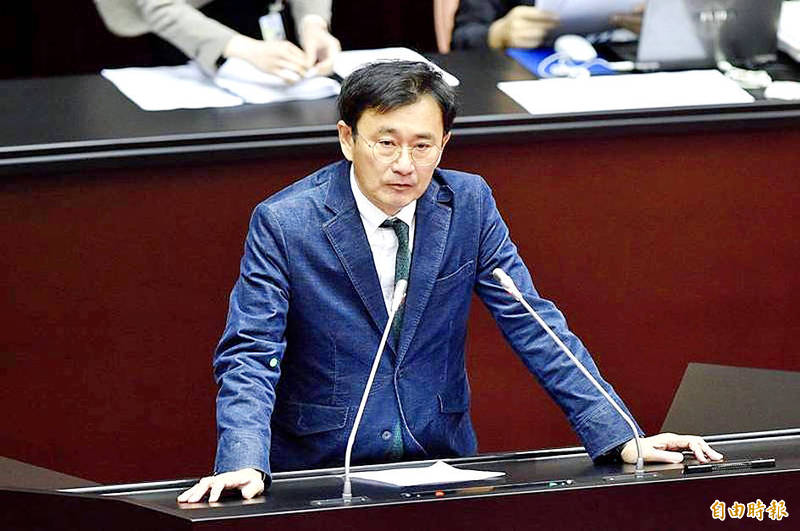
Democratic Progressive Party Legislator Huang Kuo-shu speaks at the legislature in Taipei in an undated photograph. Photo: Hsieh Chun-lin, Taipei Times
By Tang Tsai-hsin and William Hetherington / Staff reporter, with staff writer
Democratic Progressive Party (DPP) Legislator Huang Kuo-shu (黃國書) yesterday said he would leave the party and would not seek re-election, as he confirmed a report that he worked as an informant for the Chinese Nationalist Party (KMT) authoritarian regime when he was a student.
The Chinese-language Liberty Times (the Taipei Times’ sister newspaper) reported on Saturday that Huang, 57, worked as an informant for the KMT when he was in college.
Huang yesterday on Facebook said he accepts political responsibility for working with the authoritarian government to spy on his fellow students when he was in university and apologized to those affected by his actions.
He also said he would resign from the DPP.
“Back then, I made friends with dissidents, and the authorities came to me saying that I would ‘run into trouble’ if I kept associating with the dissidents,” he wrote. “They told me that I would be protected if I helped them gather information.”
After several meetings with the authorities he believed them and cooperated with their demands, he wrote.
Huang did not specify for how long he provided information or when, only saying that he was in his early 20s at the time, which means he became an informant in the mid-1980s, not long before martial law was lifted in 1987.
“Since taking office [as a lawmaker] I have worked hard to promote Taiwan’s local history and culture. I believe that was my way of seeking redemption,” he wrote. “I cannot take back what I have done, but I still hope to contribute to Taiwanese society.”
Huang said he would finish his term as legislator and withdraw from the DPP afterward to perform cultural and public welfare roles.
DPP spokeswoman Yen Juo-fang (顏若芳) said the party respected Huang’s decision, as well as his “bravery in facing his past.”
DPP caucus whip Ker Chien-ming (柯建銘) praised Huang and said he hoped Huang would remain in the DPP to “help it defend Taiwan.”
DPP Legislator Fan Yun (范雲), who has said she was monitored by the KMT for years during the Martial Law era, said she was “shocked and deeply hurt” upon learning about Huang’s past actions, but that she also felt his admission was “an important first step” toward bringing facts to light.
DPP Legislator Mark Ho (何志偉) said he respected Huang, adding that he felt that during the Martial Law era it was not uncommon for people to do things that were uncharacteristic of them.
Asked about the issue, KMT Chairman Eric Chu (朱立倫) said he had no comment, but described it as the DPP’s factional infighting.
However, he said that the authoritarian government during the Martial Law era was a product of the times and was not the real KMT.
Chu said democracy in Taiwan has regressed under the DPP administration.
The DPP is an “authoritarian regime” that does not allow diversity or dissent, he said.
Additional reporting by Yang Chun-hui and CNA
新聞來源:TAIPEI TIMES







